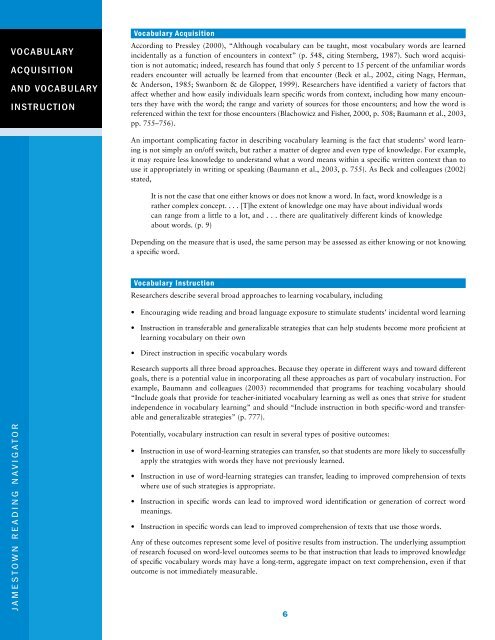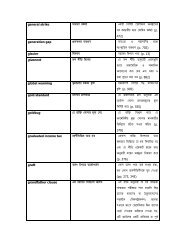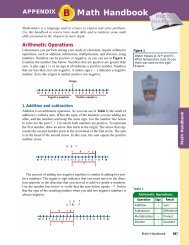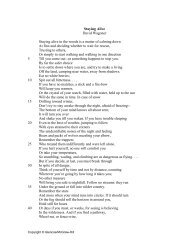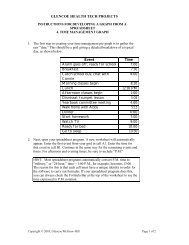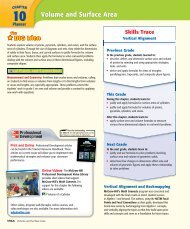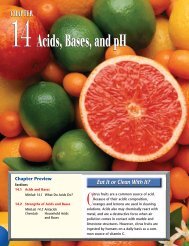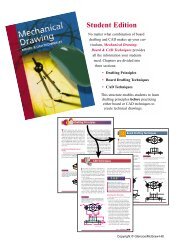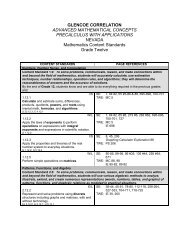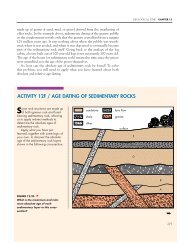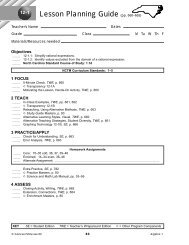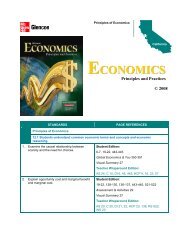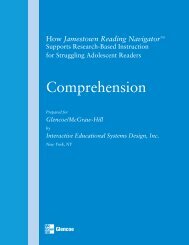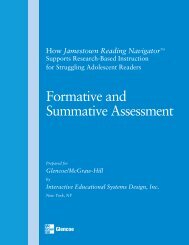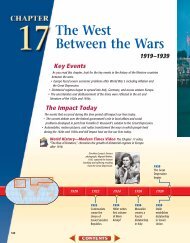Vocabulary - Research
Vocabulary - Research
Vocabulary - Research
Create successful ePaper yourself
Turn your PDF publications into a flip-book with our unique Google optimized e-Paper software.
vocabulary<br />
acquisition<br />
and vocabulary<br />
instruction<br />
<strong>Vocabulary</strong> Acquisition<br />
According to Pressley (2000), “Although vocabulary can be taught, most vocabulary words are learned<br />
incidentally as a function of encounters in context” (p. 548, citing Sternberg, 1987). Such word acquisition<br />
is not automatic; indeed, research has found that only 5 percent to 15 percent of the unfamiliar words<br />
readers encounter will actually be learned from that encounter (Beck et al., 2002, citing Nagy, Herman,<br />
& Anderson, 1985; Swanborn & de Glopper, 1999). <strong>Research</strong>ers have identified a variety of factors that<br />
affect whether and how easily individuals learn specific words from context, including how many encounters<br />
they have with the word; the range and variety of sources for those encounters; and how the word is<br />
referenced within the text for those encounters (Blachowicz and Fisher, 2000, p. 508; Baumann et al., 2003,<br />
pp. 755–756).<br />
An important complicating factor in describing vocabulary learning is the fact that students’ word learning<br />
is not simply an on/off switch, but rather a matter of degree and even type of knowledge. For example,<br />
it may require less knowledge to understand what a word means within a specific written context than to<br />
use it appropriately in writing or speaking (Baumann et al., 2003, p. 755). As Beck and colleagues (2002)<br />
stated,<br />
It is not the case that one either knows or does not know a word. In fact, word knowledge is a<br />
rather complex concept. . . . [T]he extent of knowledge one may have about individual words<br />
can range from a little to a lot, and . . . there are qualitatively different kinds of knowledge<br />
about words. (p. 9)<br />
Depending on the measure that is used, the same person may be assessed as either knowing or not knowing<br />
a specific word.<br />
<strong>Vocabulary</strong> Instruction<br />
<strong>Research</strong>ers describe several broad approaches to learning vocabulary, including<br />
• Encouraging wide reading and broad language exposure to stimulate students’ incidental word learning<br />
• Instruction in transferable and generalizable strategies that can help students become more proficient at<br />
learning vocabulary on their own<br />
• Direct instruction in specific vocabulary words<br />
<strong>Research</strong> supports all three broad approaches. Because they operate in different ways and toward different<br />
goals, there is a potential value in incorporating all these approaches as part of vocabulary instruction. For<br />
example, Baumann and colleagues (2003) recommended that programs for teaching vocabulary should<br />
“Include goals that provide for teacher-initiated vocabulary learning as well as ones that strive for student<br />
independence in vocabulary learning” and should “Include instruction in both specific-word and transferable<br />
and generalizable strategies” (p. 777).<br />
J a m e s t o w n R e a d i n g N a v i g a t o r<br />
Potentially, vocabulary instruction can result in several types of positive outcomes:<br />
• Instruction in use of word-learning strategies can transfer, so that students are more likely to successfully<br />
apply the strategies with words they have not previously learned.<br />
• Instruction in use of word-learning strategies can transfer, leading to improved comprehension of texts<br />
where use of such strategies is appropriate.<br />
• Instruction in specific words can lead to improved word identification or generation of correct word<br />
meanings.<br />
• Instruction in specific words can lead to improved comprehension of texts that use those words.<br />
Any of these outcomes represent some level of positive results from instruction. The underlying assumption<br />
of research focused on word-level outcomes seems to be that instruction that leads to improved knowledge<br />
of specific vocabulary words may have a long-term, aggregate impact on text comprehension, even if that<br />
outcome is not immediately measurable.


